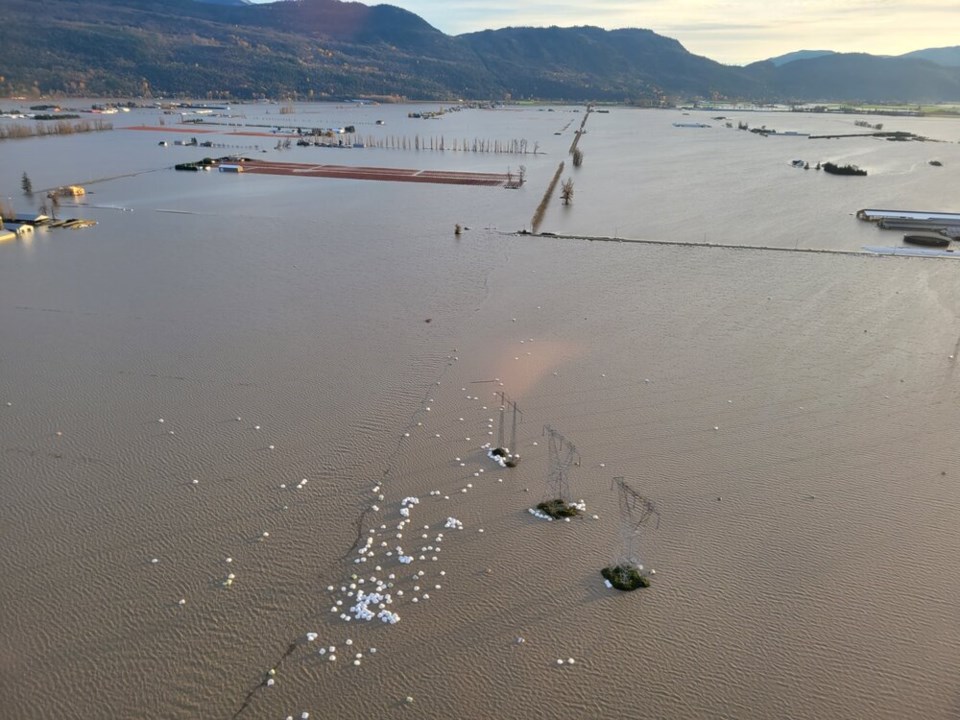Economists at the Bank of Montreal (BMO) are cutting B.C.’s economic forecast as this month’s flood disaster delivers another blow to the province’s growth prospects.
The bank had originally pegged GDP growth at 5.3% for the year but downgraded that outlook to 3.8% on Nov. 19.
Last week the Business Council of B.C. confirmed it would be cutting its 2021 forecast — originally pegged at 5.8% back in August — within about two weeks.
BMO senior economist Robert Kavcic compared B.C.’s catastrophic weather to the Calgary floods of June 2013, which cost about $5 billion in damages, and resulted in $2.5 billion in recovery and capital investments for a total of $7.5 billion. Canadian GDP fell 0.4% the month of those 2013 floods.
“This episode is likely bigger and the impact wider because of how it is choking off supply lines,” he said in a note.
The Port of Vancouver facilitates the trade of roughly $240 billion goods of annually — 15-20% of the country’s total. But with damaged roads cutting off the flow of goods in and out of southwestern B.C., supply chains face major disruptions in B.C.
Potential gas shortages could also slow the movement of goods if transportation companies can’t keep their trucks fuelled. On Friday, the province went as far as restricting gas fill-ups to 30 litres per visit for non-essential vehicles.
“This comes as supply chains are already stretched thin amid torrid consumer demand, and the economy more broadly, is pushing up against capacity constraints (e.g. labour supply), stoking inflation concerns,” Kavcic said.
“The last thing the Canadian economy needs right now is another supply-side constraint, and the devastating floods in British Columbia are serving up a major one.”
He said rebuilding efforts will boost growth next year “but replacing destroyed capital is not adding new capacity and it takes up productive resources that could have been used elsewhere.”
Greg D’Avignon, CEO of the Business Council of B.C., told BIV last week B.C.’s gateway economy is a massive boon not just for the province but for the rest of Canada and other parts of North America.
“Frankly, we are the economic corridor and engine for the rest of the country, and in some instances, the U.S. heartland. And so the port and airports are material around the economic prosperity of the country,” D’Avignon said.
“The impact of that disaster … brings to the fore the importance of having safe, secure and efficient infrastructure and energy, and the ability to move goods and supplies in and out of — not just Metro Vancouver — but throughout the province and the rest of the country.”
twitter.com/reporton
Correction: An earlier version of this story erroneously referenced RBC rather than BMO. We apologize for the error.





